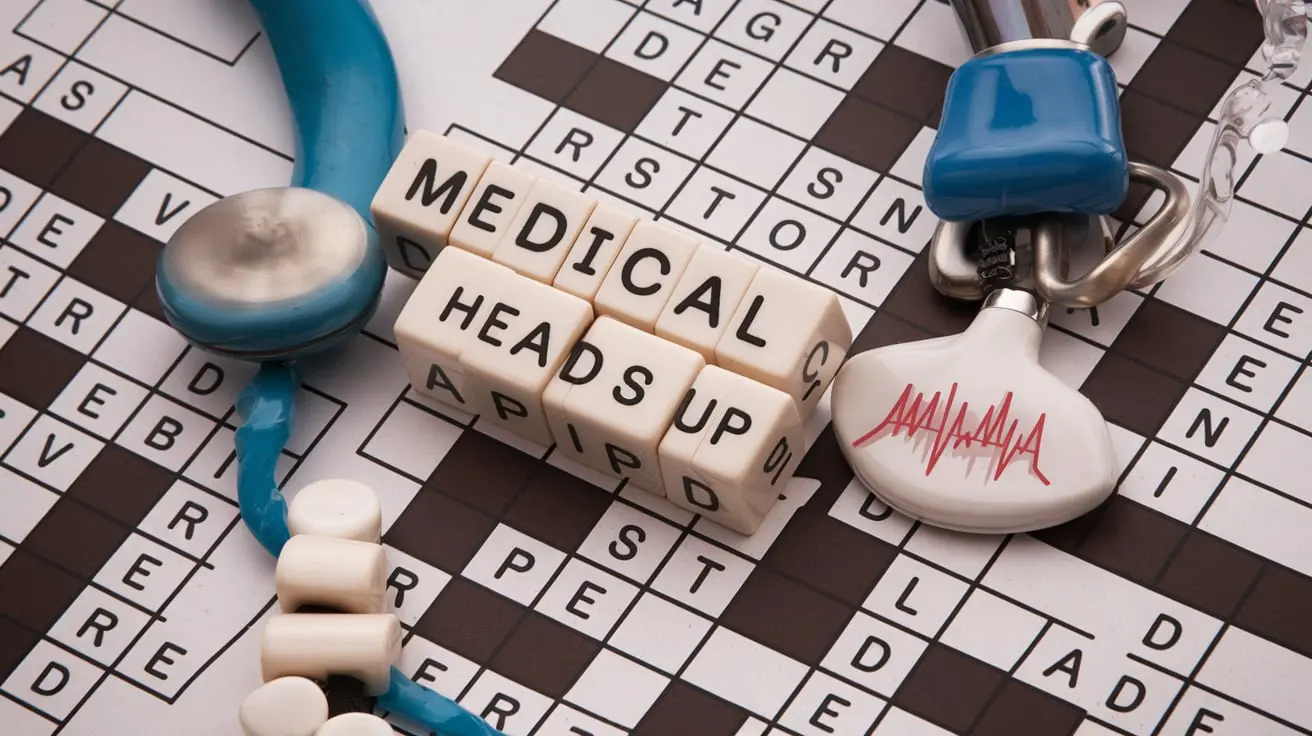Crossword puzzles are a favorite pastime for many, blending fun with mental exercise. But some clues, like the cryptic “Medical Crisis Heads Up,” can leave even experienced solvers stumped. Understanding how to approach such clues is essential, especially when they’re less straightforward. This article provides the key tips and techniques you’ll need to decipher this phrase, along with general advice for tackling medical-themed crossword clues.
Understanding the Basics of Medical Clues
Medical clues in crosswords often reference common terms, abbreviations, or phrases used in healthcare. To solve “Medical Crisis Heads Up,” it helps to break down the clue and see how each word might connect to medical terminology or warning signs.
- Analyze Each Word in the Clue
Start by examining the key terms individually: “Medical,” “Crisis,” and “Heads Up.”- Medical: Indicates the answer likely has something to do with healthcare, medicine, or the body.
- Crisis: This often refers to an urgent or emergency situation, perhaps a sudden health issue.
- Heads Up: Implies a warning or alert.
- Common Synonyms and Abbreviations
Many medical terms have familiar abbreviations or acronyms, especially in emergencies. For example, EMT (Emergency Medical Technician) or CPR (Cardiopulmonary Resuscitation) are common terms that could fit a medical crisis context. - Look for Well-Known Medical Emergencies
Medical crises that might be hinted at in crosswords could include words like “stroke,” “code blue,” or “911.” Keeping a list of terms related to medical emergencies can help if you frequently encounter such clues.
Breaking Down “Heads Up” in Crossword Clues
The phrase “heads up” often hints at something related to warnings, alerts, or preparation for a medical event. Here’s how to interpret it:
- Alert Synonyms
Words like “alarm,” “call,” “signal,” or “beep” might come to mind when you think of “heads up.” Try these as possibilities if they match the number of letters required in the crossword puzzle. - Consider Acronyms for Alerts
Terms like “ER” (Emergency Room), “EMS” (Emergency Medical Services), and “ICU” (Intensive Care Unit) could relate to medical crises and alerts. - Phrases Signaling Urgency
“Heads up” might also suggest a sense of urgency or immediate response. Words like “code red,” “siren,” or even “pager” (in older medical dramas and settings) may fit.
Key Techniques for Decoding Complex Medical Clues
Here’s how to approach “Medical Crisis Heads Up” and similar clues using specific crossword-solving techniques:
- Use Contextual Clues from Other Answers
Crosswords are often interconnected. Try solving surrounding clues to see if they provide letters that help narrow down the options. This can be especially useful for cryptic clues. - Experiment with Potential Answers
Make an educated guess based on partial solutions. For instance, if you have a few letters filled in, see if they align with common medical terms. - Consider Letter Count and Word Structure
Some medical clues are abbreviations, so if the answer is two letters (like “ER” or “CP”), think of short medical abbreviations. If the answer is longer, consider multi-word phrases like “code red” or “stroke alert.” - Look Out for Puns and Wordplay
Crossword clues often rely on puns or double meanings. “Heads up” could hint at a term related to “head,” such as “migraine” or “concussion,” if we think about it literally.
Common Medical Terms in Crosswords
Familiarizing yourself with commonly used medical terms in crosswords can give you an edge when solving clues like “Medical Crisis Heads Up.” Here are some terms to keep in mind:
- ER/ICU: Refers to emergency and intensive care units.
- CPR: A lifesaving technique used in medical emergencies.
- Stat: Medical term for “immediately.”
- AED: Automated External Defibrillator, often seen in emergency contexts.
- Stroke/Heart Attack: Frequently seen in medical-themed puzzles.
Checklist for Solving Medical Crossword Clues
To keep these strategies top of mind, here’s a quick checklist for tackling medical clues, including “Medical Crisis Heads Up.”
- Break down each word and think of synonyms related to health.
- Use surrounding letters to help guess possible words.
- Look for common abbreviations like ER, ICU, or CPR.
- Check for puns or double meanings in the clue.
- Consider urgency words for “crisis” and “heads up” like “alert” or “alarm.”
Real Examples of Similar Crossword Clues
Here are a few examples of medical crisis clues and their common answers to help solidify your approach:
- Clue: “Heart emergency (2 words)”
- Answer: “Cardiac Arrest”
- Clue: “Immediate medical attention (abbr.)”
- Answer: “ER”
- Clue: “On-site emergency equipment”
- Answer: “AED”
- Clue: “Medical response to a crisis”
- Answer: “Stat”
By working through these examples, you’ll see how understanding context and abbreviations can help you solve similar clues quickly.
Using Online Tools and Resources for Help
If you’re still stumped after trying all these strategies, there are online resources that can assist:
- Crossword Solver Websites
Platforms like Crossword Solver allow you to input known letters and filter by possible word length. This can be especially helpful if you’re only missing a few letters. - Medical Abbreviation Dictionaries
Websites dedicated to medical abbreviations, such as MediLexicon, can help decode common medical terms if you’re not familiar with them. - Crossword Communities
Forums on sites like Reddit or Wordplays offer communities where solvers discuss tricky clues, share tips, and provide guidance. Sometimes, simply seeing a clue explained by others can help you understand the logic.
Practice with Commonly Seen Medical Crisis Clues
Finally, let’s look at some frequently appearing medical crisis clues and the logic behind their answers:
- “Quick response team in hospitals”
- Often answered as “EMS” (Emergency Medical Services).
- “Intensive care location (abbr.)”
- Usually “ICU” or “ER.”
- “Hospital emergency code”
- Could be “Code Blue” (indicating a critical emergency).
- “Medical alert device”
- Could be “AED” or “Pager.”
Practicing these types of clues can boost your confidence and make it easier to spot patterns when you see related clues in future crosswords.
Wrapping Up
With these key tips, solving “Medical Crisis Heads Up” and similar crossword clues becomes easier and more enjoyable. Remember to start by analyzing each word, break down potential meanings, and stay familiar with commonly used medical terms. Over time, these skills will enhance your ability to solve complex crossword clues confidently.

